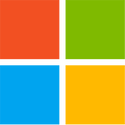Thursday, October 1st 2020

Microsoft Accelerates x64 Application Support for Windows 10 on Arm
Microsoft has announced that they will be pushing x64 app support on their Windows 10 on Arm operating system. This is part of a move by Microsoft to mainstream adoption of their OS (and related services) on Arm-based platforms, ensuring that the company has a foothold in that market - especially as competition between Arm and x86-x64 architectures increases further and reaches more and more areas. Whereas before, Arm was relegated to low-power, relatively low performance designs, recent years have seen Arm's design performance (and philosophy) looking for higher performance use-cases both in the consumer and server/supercomputing spaces. One needs not look further than NVIDIA's plans to acquire Arm to see how much stock is being placed in Arm's future,
The x64 application support for Windows 10 on Arm will first be enabled for Windows Insiders come November, and will support all Windows 10 on Arm system released in the last couple of years, no matter the processor. This support works through emulation, though, so it remains to be seen exactly how well - and at what performance - these applications run. Microsoft has already improved tools and SDKs for application porting efforts to its Windows 10 on Arm ecosystem, and the company will be releasing custom-tailored versions of the Edge Browser, Microsoft Teams, and Visual Studio that play on the platform's strengths. Interesting times lie ahead of us - and if NVIDIA is able to go through with its Arm acquisition (which is a long way from being a guarantee), we might be looking at NVIDIA-branded laptops that run Windows 10 on Arm alongside branded Arm CPUs and NVIDIA GPUs.Adding x64 support to Windows on Arm is arguably more important than the base x86 support, though one couldn't live without the other. As more and more applications have been built from the ground-up on x64 due to increased requirements and the democratization of RAM memory (among other factors), x64 support may finally bring Windows on Arm to a feature-level parity with Windows 10 on x86-64 - and bring the fight against Apple's creator ecosystem that encompasses that firm's Macs through iPads and iPhones.
Source:
Windows Blogs
The x64 application support for Windows 10 on Arm will first be enabled for Windows Insiders come November, and will support all Windows 10 on Arm system released in the last couple of years, no matter the processor. This support works through emulation, though, so it remains to be seen exactly how well - and at what performance - these applications run. Microsoft has already improved tools and SDKs for application porting efforts to its Windows 10 on Arm ecosystem, and the company will be releasing custom-tailored versions of the Edge Browser, Microsoft Teams, and Visual Studio that play on the platform's strengths. Interesting times lie ahead of us - and if NVIDIA is able to go through with its Arm acquisition (which is a long way from being a guarantee), we might be looking at NVIDIA-branded laptops that run Windows 10 on Arm alongside branded Arm CPUs and NVIDIA GPUs.Adding x64 support to Windows on Arm is arguably more important than the base x86 support, though one couldn't live without the other. As more and more applications have been built from the ground-up on x64 due to increased requirements and the democratization of RAM memory (among other factors), x64 support may finally bring Windows on Arm to a feature-level parity with Windows 10 on x86-64 - and bring the fight against Apple's creator ecosystem that encompasses that firm's Macs through iPads and iPhones.

7 Comments on Microsoft Accelerates x64 Application Support for Windows 10 on Arm
i hope we'll have os&softs which will work without emulation...
So It's a browser, another browser and yet another browser that got ported to Windows-on-ARM. The more important apps are not yet native. Full Office 2019 is running on the ARM 32-bit emulation which is quite limiting. Visual Studio as quoted above doesn't run natively either.
Best case scenario, it will take quite literally, decades, to build up a comparable library of software.
ARM and mobile are a good match, x86 and PCs area a good match. Let's keep it that way.
This will take most of the development off their hands.
Provide a compatibility layer, so that applications will work between the two. So all Windows apps will run on Linux.
Buy Etersoft and built the Wine software out.
Don't need ARM here and just fixing x86 software on x86 has proven to be difficult enough.
MS accelerating generally means they didn't do a thing on it just yet, or what they've done didn't bear fruit.
But, good luck anyway, I suppose. So far it smells a lot like Windows Mobile to me. Great potential, not happening.